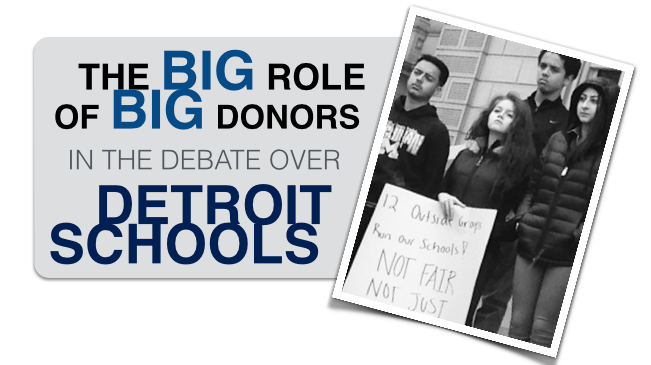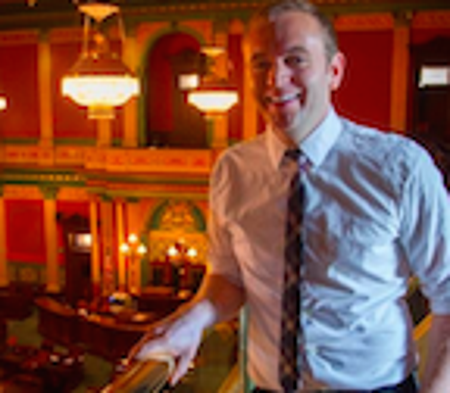Big Campaign Donors Putting Full Weight Into DPS Debate at State Capitol
Watchdog: Lobbying in Lansing for control of school policy is latest battle in philosophical fights.

The battle over how to address the financial and academic crisis in Detroit Public Schools is reaching a fever pitch at the state Capitol. At the same time, big campaign donors are pouring millions of dollar into lawmakers’ personal campaign coffers. Is this an effort to influence the debate over Detroit schools?
Craig Mauger, director of the Michigan Campaign Finance Network, joins WDET’s Stephen Henderson on Detroit Today to explain what’s in a new report “The Big Role of Big Donors in the Debate Over Detroit Public Schools.” He says large funders of candidate campaigns are also now getting mobilized and trying to influence the legislation that going to happen on the future of education.

This debate, specifically, is about the future of education in Detroit and what that is going to look like
“This is a philosophical debate: what kind of controls you can put on charter schools,” Mauger says.
The MCFN tracks campaign spending, generally what candidates and lawmakers are getting from individuals, interest groups and political action committees (PACs), but in this report, the group tracks how money is moving on a particular issue: Detroit schools.
Big money is being spent on both sides of the aisle. Special interests want to push legislation, which will eventually shape education in the city of Detroit. Democrats, especially Detroit lawmakers, are clashing with pro-charter school Republicans over who — if anyone — should control school openings and closings in Detroit.
“There’s a lot of lobbying, a frenzied lobbying campaign on both sides,” Mauger says. “There are like 25 different interest groups that have put out their thoughts on this and also have lobbyists. That’s a large number. There’s a lot of employment there for lobbyists.”
The lack of disclosure required by and fundraising controls on lawmakers is cause for concern across the state, Mauger says. A 2015 report from Center for Public Integrity, for example, found Michigan to be the worst when it comes to accountability and transparency in state government.
“There are a lot of states that have varied rules on trying to reign in lobbyists influence or at least make it more transparent so people can see what kind of influence the lobbyist are wielding, how they’re wielding it, and what they’re doing.” Mauger says.
Neither side is pushing true reform that would increase transparency or better control campaign finance ethics, he says.
Just how bad Michigan is, according to Mauger, would stun citizens.
“I think they would have a shocked reaction that a lawmaker can be on the floor while also having a fundraiser going on in Lansing at the same time,” Mauger says. “There are other states that have periods of the year maybe during budget session or when the Legislature or is in session where you just can’t do that.”
Mauger says it’s worth noting that Michigan presidential primary winners – Republican Donald Trump and Democrat Bernie Sanders — both talked during their campaigns about limiting campaign spending.
Click on the audio link above to hear the full conversation.
